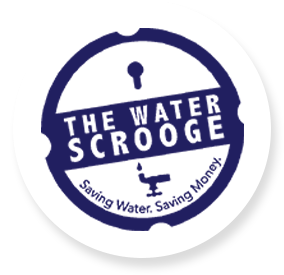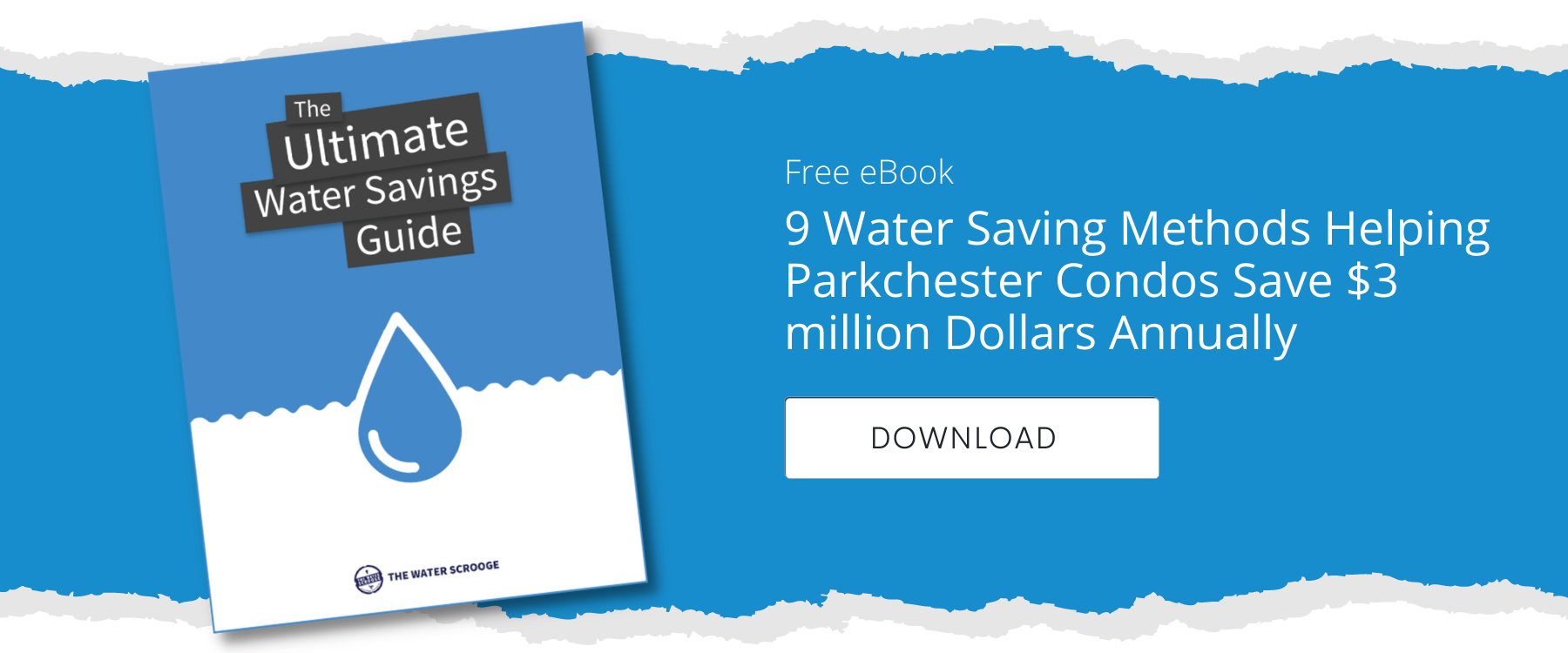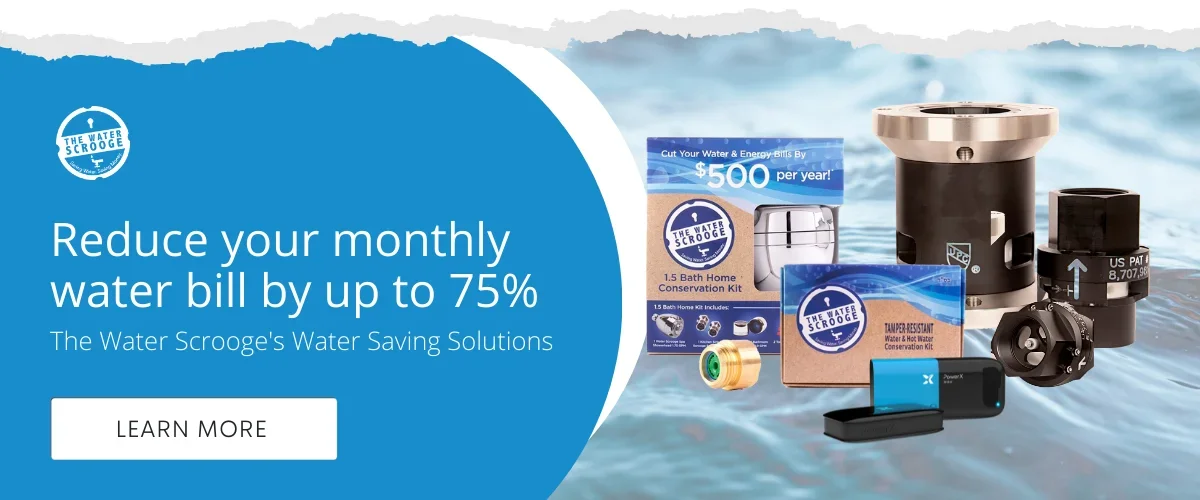5 min read
Is There Anything I Can Do to Reduce My Tenants’ Water Bills
![]() David Schwartz
Jul 12, 2022 8:37:17 PM
David Schwartz
Jul 12, 2022 8:37:17 PM

You want to find the most efficient and cost-effective ways to maintain your utilities when renting out your multi-tenant buildings and properties. Reducing costs is a very appealing prospect for you and your renters alike.
However, you need to make sure things are done legally. Additionally, you want projects done well to prevent expensive repairs. Here are some of the best ways to lower your tenants’ water bills.
- Fix Leaks
- Hire Reliable Professionals for Fixes
- Invest in Newer Appliances
- Install Water Conservation Solutions
You can take easy steps to lower water bills before issues arise. Prevent extensive repairs and high bills by managing your pipes and previous flooding.
1. Fix Leaks
This tip might seem evident, but it requires more dedication and observation than you might think. You need to be on top of the state of your property constantly to avoid water leaks.
You should check your pipes frequently, whether you have a property manager or do it yourself. You can also hire a plumber to perform a regular leak inspection. This will ease the renter’s worries and your own about any possible leaks.
You could also ask tenants to inform you of a leak as soon as possible. A leaky faucet, even one that doesn’t seem like much trouble, can waste up to 20 gallons of water each day. When new renters move in, let them know they should tell you if something in their apartment is leaking. It will save them a lot of money, and they’ll greatly appreciate that you tackled the problem quickly.
2. Hire Reliable Professionals for Fixes
Hire somebody who knows what they are doing, whether you’re getting a leak fixed or need to dry out a previously flooded area. Making repairs on your own might save you money, but poor work could decrease the property’s value.
Hiring a professional, like a Water Consultant, reduces the chance that leaks and flooding will be a repeat occurrence. Getting the property fully dried and clean will also ensure there is no unseen damage that could affect walls and internal structures.
The process might be costly, but check with your insurance company to see if it provides coverage for these repairs. Spend the full amount of money if so. Taking insurance money for personal benefit is considered fraud and could result in fines or jail time.
Actionable Tips
There are active ways to lower renters’ water bills. Improved appliances and ideas about reducing water use will help them spend less.
3. Invest in Newer Appliances
Updating toilets, faucets, showerheads and washing machines can help with the water bill. Modern appliances are designed to use less water and will therefore reduce your tenants’ water usage.
- Toilets: Old toilets could use around 6 gallons of water to flush, while modern versions use about one-sixth of that amount. Renters could be saving hundreds of gallons per day with newer toilets, depending on how many units you have. Consider replacing anything made before 1994 to use less water.
-
Washing machines: Washing machines should also be replaced if they are too old. Outdated models could use 45 gallons of water per load, whereas recent ones utilize as little as 14 gallons. Updating the machines will significantly cut back on water bills, even if you use a common area for washers and dryers.
- Showers: A typical American shower uses almost 16 gallons of water and 11.1 gallons per capita per day. That’s why it’s important to look into showerheads that use less water per minute. Invest in ones with the WaterSense label, which means they use less than 2 gallons of water per minute. This will help your renters save a decent amount every month and year.
- Dishwashers and faucets: Faucets and dishwashers use a lot of water because of how often they are used. An old dishwasher might use 16 gallons of water per load, and old faucets can use around 9 to 27 gallons. Updated machines will use an average of 6 gallons, and new faucets will use approximately 2 gallons. These are significant differences that will do a lot to lower the amount of water a tenant uses.
Remember that certain states require you to provide adequate water pressure under tenants’ rights laws. This is included in keeping your rental property habitable. Providing good water pressure will make your renters happy and maintain proper standing with whichever state you are in.
Older appliances also have an increased chance of leaking or breaking due to everyday wear and tear. In addition to what you will pay to replace them, you might also pay for constant leak repair and flooding damage. Outdated appliances will also cost your renters a lot of extra money. Opting for new appliances is a great way to reduce your tenants’ water bills.
4. Install Water Conservation Solutions
The Water Scrooge™ cuts water waste by installing patented tamper-proof water conservation products in showers, kitchens, bathrooms, and toilets and adding a wireless monitoring system to monitor the waste in your property's water risers.
By installing Water Scrooge™ water conservation solutions, landlords can save up to 75% on their water and heater bills.
- Shower flow controllers: United States regulations stipulate that showers must be limited to 2.5 gallons of water flow per minute. The average water flow in showers is 60% more than the legal limit, which can account for $463 per shower, per year! The Water Scrooge™ shower flow controller reduces water waste by controlling the flow of water to an intentional gallons-per-minute flow rate. Savings are locked in by completely tamper-proof fixtures that sit behind the shower wall.
- Toilet leak PREVENTION devices: Over time, toilets use more water per flush than they should which means that you are wasting money and for a landlord, flushing alone can increase the water bill by tens of thousands of dollars. The Water Scrooge™ has the only solution in the open market for over-flushing toilets: The Toilet Scrooge™ leak prevention device is a calibration service and an automated 24/7 toilet leak prevention system.
- Leak Detection Systems: Buildings with optimal water flow in showers and faucets and properly flushing/ leak monitored toilets, can still waste significant amounts of water, wasting tens of thousands of dollars per year. To solve this problem we install a wireless monitoring system to monitor the water risers in the building. With The Water Scrooge™ leak detection system, we're able to detect new and existing leaks automatically, identify the source of the leaks quickly and solve them efficiently.
- Water flow management devices: In the volume of water passing through your water meter, there is also a volume of air for which you are getting charged for. How much? about 20% extra for air! The SMART VALVE™ is Water Scrooge's solution for you to stop paying for air present in your water supply.
Encourage Water-Saving Behavior
Sometimes, renters will use a lot of extra water no matter how efficient the appliances are. Combat this by inspiring your tenants to reduce how much water they are using. Here are some ways they can use less:
- Only let the water run when you are using it
- Only run dishwashers and washing machines when full
- Consider timing showers and keeping them under five minutes
- If doing dishes by hand, fill the sink with hot water instead of letting it run
- Compost instead of using the garbage disposal
On average, 75% of a household’s water is used in the bathroom. Advise renters to turn the faucet off when brushing their teeth or shaving. Filling the sink to rinse dishes and razors can save even more.
The typical shower can last anywhere from eight to 10 minutes. Challenge renters to lessen how much time they’re spending in the shower by setting an alarm or listening to a song that is five minutes long. Water-efficient showerheads mean they’ll only be using about 10 gallons for each shower.
Consider setting a building-wide goal to reduce average water use. Start with achievable goals, but think about increasing them with each one that is met. Offer incentives like a slight reduction in rent for the next month, or organize food deliveries to common rooms or apartments. Perks like these will motivate your renters to follow through with your plan and save them money.
Reach out to tenants that are running a lot of water and ask if they would like advice about how to reduce their usage. Let them know that doing so will noticeably lower their bills. Consider also educating your renters on the ecological benefits of preserving water.
You should always avoid turning off a tenant’s utilities, even in the event of nonpayment. Legally, you can only turn off the water with advanced notice and only for repairs. You can turn it off without notice in the event of an emergency, but you should encourage water-saving habits instead of reducing access to conserve it.
Use This Information to Help Lower Tenants’ Water Bills
Asking how you can lower your renters’ water bills is admirable. It shows that you really care about the people living in your properties and want to make an effort to ease their stress. Be sure to effectively track and prevent leaks and floods, replace inefficient appliances, and encourage tenants to use less. This should help renters see reduced water bills, which will make them appreciate you as their landlord.




